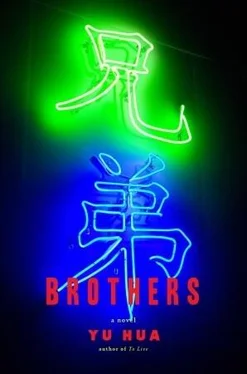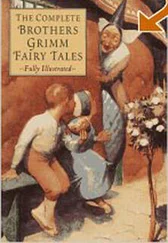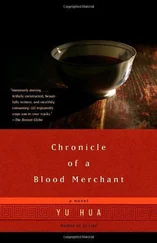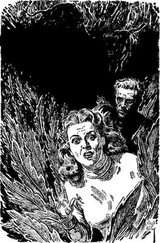BALDY LI spread his wings and soared to Tokyo, Osaka, and Kobe, not skipping over Hokkaido and Okinawa either. He loitered in Japan for more than two months, during which time he amassed 3,567 tons of discarded "junk suits." These so-called junk suits looked brand-new, had impeccable tailoring, and fit just as well as the Italian-made Armani suits Baldy Li would later wear. The Japanese sold these old suits to Baldy Li for next to nothing, and Baldy Li in turn hired a Chinese freighter to ship them back to Shanghai. He wasn't willing to hire a Japanese freighter because, he explained, the Japanese charged far too much. In fact, merely hiring workers on the Japanese docks to load the suits onto the ferry would end up costing more than the 3,567 tons of suits themselves.
He sold the suits soon after he got to Shanghai. Within a few days so many scrap kings had come from all over the country that they were said to have completely filled a four-star hotel on Nanjing Road. The scrap kings hauled their cash around in large hemp sacks — dragging these sacks behind them as they trudged into the lobby of the hotel to register, dragging them onto the elevators, and continuing to drag them into their respective rooms. In the end, however, all the money in their sacks ended up in Baldy Li's hands. Li's junk suits were thereby distributed throughout the entire country via railways, highways, and waterways. As a result, throughout China people were removing their old wrinkled Mao suits and donning instead Baldy Li's Japanese junk suits.
Baldy Li of course never forgot those of us back in Liu, and he specifically set aside five thousand junk suits to bring back. By this point, Western suits had become quite fashionable in Liu, and when the town's young men needed new suits for their weddings, they would always ask Tailor Zhang to make them. After twenty years making Mao suits, now that Western-style suits had become fashionable Zhang switched to making them instead. The way he saw it, it was quite simple: Both kinds of suits had the same shoulder padding, so all you had to do was add a collar and lapels to a Mao suit and you would have a Western one. Invariably, though, after a couple of months, the young men of Liu found that Zhang's knock-off Western suits would begin to lose their shape. So when Baldy Li brought his suits back from Japan, the town found itself in a consuming frenzy, with huge crowds jostling toward the warehouse, diving into Baldy Li's pile of suits as if they were diving into a river. While searching feverishly for their size, everyone remarked on how the suits, even though they looked brand-new, were cheaper than secondhand ones sold elsewhere. Within a month Baldy Li had sold his entire stock of five thousand suits.
Li's Salvage and Recycling Company was livelier than a teahouse. Upon returning to Liu, Baldy Li had immediately changed back into his tattered old clothes and cheerfully sat there as people crowded around him every day, listening attentively to tales of his adventures in Japan. Every time he got to the part about how expensive things were in Japan, he would grit his teeth in mock anguish. He described how, for the price you would pay for a breakfast of fritters and soy milk in Japan, in Liu you could buy an entire pig. Plus, he added, a bowl of soy milk there was absurdly small, "not like the huge bowls we have here in Liu. The bowls they use in Japan are even smaller than our teacups, and their fritters are thinner than chopsticks." Everyone listened intently and agreed that it would be impossible to live in Japan. Indeed, were the gluttonous Pigsy from Journey to the West to spend time there, even he would become thinner than the White-Boned Demon.
"That's right, you simply can't live there," said Baldy Li. "Japan has money but no culture."
"Japan has no culture?" everyone repeated in surprise.
Baldy Li jumped up, and everyone opened a path for him. He walked over to the blackboard for recording sales, took up a piece of chalk, and wrote the number 8. Then he turned around and asked, "How do you pronounce this number?"
Everyone shouted, "Ba."
"Correct." Baldy Li nodded with satisfaction. "This is an Arabic numeral."
Baldy Li threw down his chalk, sat back down in his seat, and announced, "The Japanese don't understand Arabic numerals."
"Really?" Everyone's jaws dropped in astonishment.
Baldy Li crossed his legs and said proudly, "While I was in Japan, I wanted to spend some of the money I was earning, so where do you think I went? Naturally, I wanted to go to the poshest place I could find: a bar. But would I know where to find such a bar? I didn't even know the Japanese word for ‘bar.’ If I used the Chinese word for ‘bar,’ the Japanese wouldn't know what I was talking about. What could I do?"
Baldy Li paused dramatically. He licked his lips and gazed out at the crowd, savoring for a moment the crowd's impatient anticipation before continuing. "I, Baldy Li, had an inspiration. It occurred to me that even if the Japanese don't understand Chinese, shouldn't they at the very least understand Arabic numerals?"
The crowd nodded, and Baldy Li continued: "Therefore, I wrote the number 8 on my palm, which, read out loud, sounds like the word for ‘bar,’ right?"
"That's right," the crowd shouted back.
"I, Baldy Li, therefore was completely flabbergasted to find that, when I showed seventeen different Japanese people the number on my palm, not a single one of them had any idea what I was talking about. Is it therefore not true that the Japanese have no culture?"
"They indeed have no culture," the crowd cried out.
"But," Baldy Li concluded, "they do have money."
ANYONE IN LIU with any pride and self-respect whatsoever wore one of Baldy Li's junk suits. As for those without any pride and self-respect, they also wore his suits. After the men put on their handsome suits, they beamed with pride and bragged that they looked just like foreign heads of state. When Baldy Li heard this, he burst into peals of laughter, declaring that he was doing the town a great service by populating it with thousands upon thousands of foreign heads of state. The women, meanwhile, all continued to wear the same old hick-ish clothing they'd always had, leading the men to mock them as "local specialties." After mocking the women in this way, the men would then stand in front of the shop windows admiring themselves in their Western suits, remarking that if they had known that they would come to look like foreign heads of state, would they have married such local specialties in the first place? Of all the men in town, Baldy Li was the only one who didn't wear a Western suit. In Baldy Li's mind, even the best Western suit was ultimately still someone else's "junk suit," and no matter how tattered his own clothing was, it was nevertheless still his own. He didn't express these opinions out loud, and when people asked him why he kept wearing such tattered clothes, he would reply modestly, "I'm in the tattered-goods business, so of course I should wear tattered clothes."
Those Japanese junk suits each had a family surname stitched on their inner breast pocket. When the Liu men started donning the suits, they were fascinated by these surnames and would spend all day opening their jackets and looking to see which family's suits they were wearing, then bursting into fits of laughter.
At that time, Poet Zhao and Writer Liu were still wrapped up in their literary daydreams. Upon hearing that Baldy Li had brought over a shipment of Japanese suits, they immediately rushed over to his warehouse to rummage through the huge mountain of clothing. Writer Liu searched for three hours before eventually finding a Mishima suit. Poet Zhao refused to take this affront lying down and proceeded to spend four hours before finally finding himself a Kawabata suit.
Читать дальше










